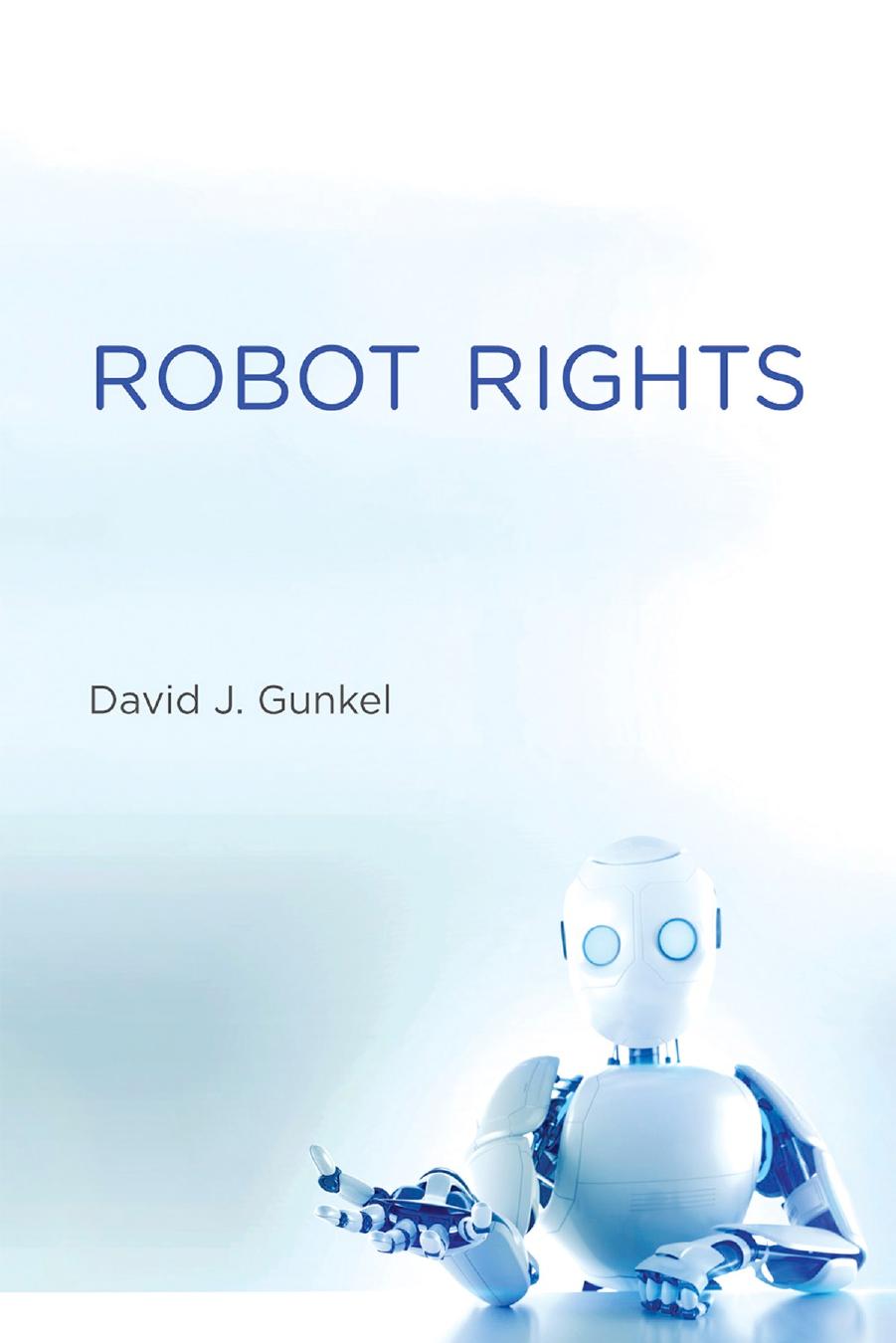Robot Rights by David J. Gunkel

Author:David J. Gunkel
Language: eng
Format: epub, pdf
Tags: Artificial intelligence; Ethics; Philosophy; Law; Moral Philosophy; Rights; Robot; Technology
Publisher: MIT Press
Published: 2018-10-25T04:00:00+00:00
Similar to the argument offered by Bryson (but focusing on the technological and not legal/moral artifact), Yampolskiy argues that robots could be our equals in term of abilities, but they should not have rights. And they should not for two reasons. First, robots are and need to remain tools of human action, which are created and deployed for the benefit of their makers. Consequently, they should be designed and used as mere instruments to be exploited and disposed of as we see fit, and we should not design them to care about how they are treated or why. We have, in other words, an obligation not to build things to which we would feel obligated. Second, if we grant rights to robots, we are in danger of releasing a social transformation that we will not be able to control. For Yampolskiy this danger comes not in the form of the typical robot apocalypse (vividly imagined in science fiction) but in the rather less dramatic effect of voting rights and robot supported transformations in democratic governance. However it is accomplished, robot rights (or RR, as Yampolskiy writes it) would challenge or diminish human dignity and self-governance. Whether this is (or would be) the case, remains an open and debated question. Although Yampolskiy forcefully asserts his theory, he unfortunately offers little or no actual social/political data to support such a claim. It may sound intuitively correct (and perhaps this is due to the fact this scenario has been presented and prototyped in robot science fiction), but “sounding correct” is not sufficient proof.
Lantz Fleming Miller, who, as we have previously seen (chapter 2), excludes robots—even and especially maximally humanlike automata—from moral consideration on the basis of fundamental ontological differences, is sympathetic to these arguments. According to Miller’s review of the existing literature, Bryson essentially gets it right but not necessarily for the right underlying reasons.
Bryson (2000; 2010; see also Bryson and Kime 2011) contends automata remain machines thus tools of humans and it is (ontologically) incorrect to merge the two and ethically wrong to delude people by attempting to blur the distinction. This position is consistent with mine below, which, though, shows exactly which ontological distinction is critical in terms of rights. However, Bryson (2009) almost hits on this distinction in emphasizing it is humans who decide to design and construct machines and are thereby in a position to decide what kind of beings they are. (Miller 2015, 373)
Download
This site does not store any files on its server. We only index and link to content provided by other sites. Please contact the content providers to delete copyright contents if any and email us, we'll remove relevant links or contents immediately.
Whiskies Galore by Ian Buxton(42012)
Introduction to Aircraft Design (Cambridge Aerospace Series) by John P. Fielding(33128)
Small Unmanned Fixed-wing Aircraft Design by Andrew J. Keane Andras Sobester James P. Scanlan & András Sóbester & James P. Scanlan(32800)
Craft Beer for the Homebrewer by Michael Agnew(18245)
Turbulence by E. J. Noyes(8047)
The Complete Stick Figure Physics Tutorials by Allen Sarah(7372)
The Thirst by Nesbo Jo(6943)
Kaplan MCAT General Chemistry Review by Kaplan(6933)
Bad Blood by John Carreyrou(6621)
Modelling of Convective Heat and Mass Transfer in Rotating Flows by Igor V. Shevchuk(6440)
Learning SQL by Alan Beaulieu(6288)
Weapons of Math Destruction by Cathy O'Neil(6279)
Man-made Catastrophes and Risk Information Concealment by Dmitry Chernov & Didier Sornette(6019)
Digital Minimalism by Cal Newport;(5764)
Life 3.0: Being Human in the Age of Artificial Intelligence by Tegmark Max(5556)
iGen by Jean M. Twenge(5414)
Secrets of Antigravity Propulsion: Tesla, UFOs, and Classified Aerospace Technology by Ph.D. Paul A. Laviolette(5371)
Design of Trajectory Optimization Approach for Space Maneuver Vehicle Skip Entry Problems by Runqi Chai & Al Savvaris & Antonios Tsourdos & Senchun Chai(5068)
Pale Blue Dot by Carl Sagan(5007)
